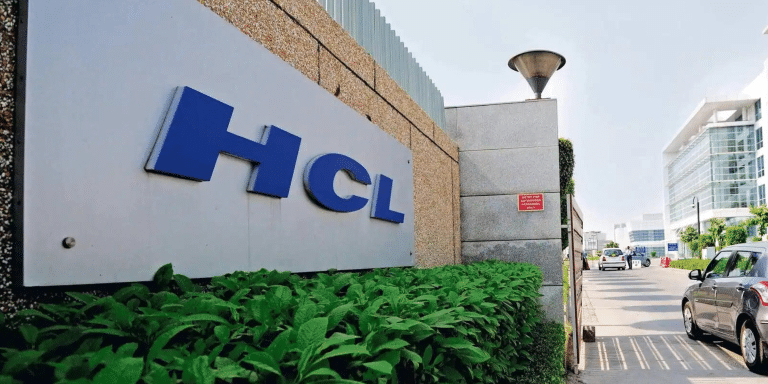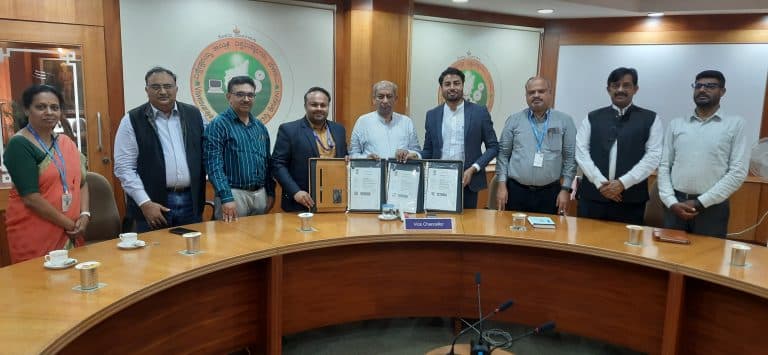Electronics manufacturing company Kaynes Technology was set to invest INR3,750 crore to build an outsourced assembly and testing (OSAT) facility in Mysuru, Karnataka, creating 3,200 jobs. However, within a few months, Kaynes shifted location to Telangana and will build the OSAT facility at a relatively lower cost of INR 2800 crore.
The Karnataka government was bombarded with criticism for letting Kaynes slip away from its hands to a neighbouring state. At the same time, the Telangana government was praised for convincing the homegrown electronics manufacturers to shift base.
This incident underscores the fact that Indian states are currently engaged in a competition to draw leading semiconductor companies to their respective regions. Setting up a fabrication unit brings numerous economic benefits — it can spur local employment opportunities and bring economic growth for the region. It also leads to enhanced export potential and the stimulation of allied industries, contributing to overall economic development.
State governments are enticing semiconductor companies with propositions like providing electricity and water, two important resources to run a fabrication unit, at subsidised rates. Numerous states are even offering additional incentives on top of those already declared by the central government.
States like Gujarat, Karnataka, Tamil Nadu, Odisha, and Assam have come up with their semiconductor policies. For instance, in July 2023, the state government of Gujarat unveiled a dedicated policy which includes incentives and subsidies to encourage semiconductor production within the state.
Gujarat is building a Semiconductor city
Gujarat is in the process of creating a ‘Semicon city’ in Dholera. Encompassing approximately 10,000 acres within the Dholera Special Investment Region (SIR), the development of the Dholera Smart City is anticipated to play a pivotal role in positioning Gujarat as a national hub for semiconductor industries.
The government is trying to attract not just fabrication companies, but also display fabrication units, silicon photonics, and semiconductor assembly, testing and packaging facilities to the state.
Bhupendrabhai Patel’s government also plans a 75% subsidy on the purchase of the first 200 acre land and an additional 50% capital subsidy to companies deciding to set up camp in the state as per the Gujarat Semiconductor Policy 2022-27.
The semiconductor projects will be supplied water at Rs. 12 per cubic metre for the initial five years, with a subsequent annual increment of 10% for the following five years. Moreover, the production unit qualifies for a Rs. 2 per unit power tariff subsidy for the initial ten years. Additionally, it will be exempted from paying electricity duty under the provisions of the Gujarat Electricity Duty Act, 1958.
So far, US-based semiconductor company Micron Technology has announced its plan to set up an outsourced semiconductor assembly and testing (OSAT) plant at Sanand in Gujarat. However, Gujarat is not the only state competing to attract semiconductor companies.
Moreover, at the 10th Vibrant Gujarat Global Summit, Tata Sons Chairman N Chandrasekaran revealed that Tata Group will build a semiconductor factory at Dholera.
Karnataka banking on the existing semiconductor R&D hub
Giving tough competition to Gujarat, Karnataka too, has identified 4 semiconductor clusters within the state. Interestingly, Karnataka was the first state to draft a semiconductor policy in 2010. In 2017, the state launched the Karnataka Electronics System Design & Manufacturing (EDSM)Policy 2017-2022.
State IT minister Priyank Kharge has revealed that his government is already talking to a few companies. Moreover, the minister even said that his government is even willing to tweak incentive and labour policies to attract major players along with their supply chains.
Karnataka would also bank upon the fact that many semiconductor companies already have their Research and Development (R&D) units in the state. Last year, AMD, an American multinational semiconductor company based in Santa Clara, California, announced its largest design centre in Bengaluru.
Other companies such as Analog Devices, NXP Semiconductors, NVIDIA and Intel, among others have established their R&D centre in Karnataka. Interestingly, Texas Instruments has had a presence in Bengaluru since 1985.
“We already have a fabless ecosystem and are slowly metamorphosing into a fab ecosystem. A lot of people are talking to us. Earlier, the talks were more speculative, and now there is a sense of urgency,” Kharge said in an interview.
Previously, ISMC, a joint venture between Abu Dhabi-based Next Orbit Ventures and Israel’s Tower Semiconductor, proposed a 65-nanometer analog semiconductor fabrication unit in Mysuru’s Kochanahalli Industrial area.
Now, reports suggest Krypton Solutions could invest INR 832 crore (USD 100 million) to set up a Printed Circuit Board (PCB) fabrication unit in Karnataka. Foxconn, along with Telangana and Tamil Nadu, are also considering the state to set up an OSAT unit in partnership with HCL.
Other states are catching up
Other states in Southern India, such as Tamil Nadu and Telangana, are also trying to lure semiconductor companies. At the Global Investors Meet (GIM), the Tamil Nadu government unveiled its ‘Semiconductor and Advanced Electronics Policy 2024’.
With the policy, the TN government aims to foster a semiconductor design ecosystem by offering incentives and financial support and promoting collaboration between the industry and academia. Companies selected under the India Semiconductor Mission (ISM) will receive an additional 50% financial incentive from the TN government.
Moreover, the youngest Indian state, Telangana, is also trying to attract semiconductor companies. Kaynes Technology has already started work on its OSAT facility in Kongara Kalan near Hyderabad.
Other states like Maharashtra, Odisha and Assam are also trying to woo semiconductor companies. The Eknath Shinde-led Shiv Sena-BJP government in Maharashtra offered INR 39,000 crore incentives to Vedanta-Foxconn JV, which chose Gujarat, before disbanding.
Assam, which has tabled a semiconductor policy, has managed to attract the Tata Group to set up an INR 40,000 crore semiconductor processing plant.
In Odisha, RIR Power Electronics Ltd, a global semiconductor company, plans to invest INR 510 crore to set up a fabrication and packaging facility for SiC devices at Info Valley, Khurda.































